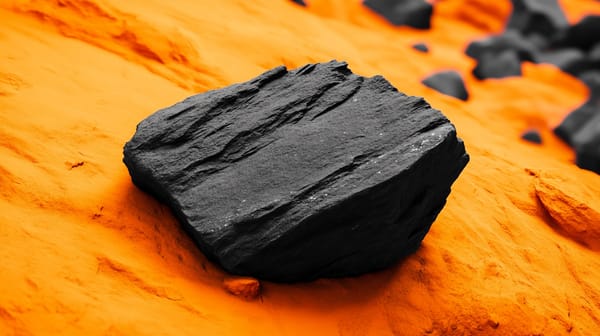How Decentralized Autonomous Organizations Align with Crypto Values
Decentralized autonomous organizations (DAOs) have emerged as a powerful new organizational structure uniquely suited to the crypto world. As crypto assets like Bitcoin and Ethereum gain mainstream traction, interest has grown in how to coordinate large groups of people in a decentralized way. DAOs aim to enable collaboration, decision making, and value creation without traditional corporate hierarchies.
DAOs Reflect Crypto's Focus on Decentralization
A core tenet of cryptocurrency is decentralization, or distributing power away from central authorities. Bitcoin and Ethereum derive their value from being decentralized networks that no single entity controls. DAOs take this concept even further by decentralizing organizational governance.
DAOs have no central leadership. Instead, decision making is distributed across all members through open voting systems. This prevents any individual or small group from dominating the DAO's direction. Members collectively control treasury funds, set policies, and execute proposals. This governance structure aligns closely with crypto's emphasis on decentralization.
Having no central point of failure also makes DAOs highly resilient. Traditional organizations can be disrupted if key leaders depart or make poor decisions. But DAOs have no single leader whose absence or mistakes could sink the organization. This antifragility mirrors that of blockchain networks like Bitcoin and Ethereum, which have operated reliably for over a decade without any downtime.
Transparency Through Public Ledgers
Public blockchains like Ethereum provide DAOs with transparent accounting. All financial transactions are recorded on Ethereum's immutable public ledger for anyone to audit. This prevents embezzlement or misuse of funds that can occur in traditional organizations.
DAOs also conduct voting transparently on-chain. Members can verify votes were counted correctly and audit decision making processes. This transparency builds trust and integrity. It also represents a major shift from corporate opacity, where shareholders have limited visibility into finances and operations.
Overall, DAOs align with crypto's ethos of transparency through trustless public ledger systems. Instead of closed boardrooms, decisions happen out in the open through cryptography and code-based governance.
Community-Driven Culture
DAOs foster a community-oriented culture that resonates with crypto's grassroots nature. Most mainstream corporations have an incentive to maximize profits for shareholders. But DAOs are collective enterprises where members pool resources to create value together. This collaborative spirit traces back to crypto's beginnings with Bitcoin and early blockchain development driven by volunteer communities.
DAOs empower anyone to propose ideas and rewarding contributors through tokens. This meritocratic system is open and decentralized, rather than being constrained by office politics or hierarchies. Passionate blockchain communities have rallied around DAO experiments as a way to collectively fund projects and manage shared resources.
New Possibilities for Organizational Design
Cryptocurrency expands the realm of what's possible with programmable money and decentralized systems. DAOs represent a similar breakthrough in how groups can coordinate and govern themselves in a post-hierarchical world.
DAOs unlock new possibilities for organizational design not feasible with traditional corporate structures:
- Borderless operations - DAOs use blockchain technology to coordinate efforts across geographic boundaries more seamlessly than multinational corporations.
- Flexibility - Because DAO governance is entirely code-based, policies and processes can be altered much faster than passing new bylaws or legislation.
- New incentives - DAOs can incentivize participation through crypto token rewards and decentralized finance systems, attracting talent globally.
- Efficient fundraising - DAO treasuries reduce reliance on external financing like VCs. Members can vote to fund projects from pooled capital reserves.
In summary, DAOs expand the design space for human coordination. Crypto developers are just beginning to explore how far these decentralized organizational models can go.
How Might DAOs Evolve Moving Forward?
DAOs represent a profound innovation in collaboration, but the model is still in its infancy. How might DAOs continue to evolve in the coming years?
Some possibilities for the future:
- DAOs may become more user-friendly as interfaces improve. Today DAOs feel technical to use, limiting accessibility. Better UX could mainstream adoption.
- Interoperability between DAOs may increase. As more DAOs form, connecting them into cooperative networks could create even greater possibilities.
- DAOs may expand beyond the crypto sector into traditional companies and organizations, decentralizing mainstream industries.
- Governance schemes will likely become more sophisticated. DAOs are experimenting with various voting models including liquid democracy, futarchy, and conviction voting.
- Legal structures will co-evolve with DAOs. Regulators around the world are grappling with how to oversee this new organizational paradigm.
How Might DAOs Reshape Society?
DAOs represent a radically different way to organize human activity. If they continue maturing, how might DAOs reshape society over time?
Potential societal impacts include:
- A shift away from corporate and government hierarchies towards decentralized collaboration. DAOs could distribute power more broadly across society.
- New funding models for public goods through crypto native treasuries and incentives. Less reliance on conventional institutions for providing services.
- Changing nature of work and employment as DAOs take root beyond crypto sector. Work becoming less top-down, more community driven.
- Innovation in economics and incentive design as DAOs experiment with novel crypto token models and decentralized finance.
- More transparent and accountable organizations as DAOs mainstream best practices from crypto around public ledgers and verifiable processes.
The decentralized future is hard to predict precisely. But DAOs represent a pivotal innovation with the potential to profoundly reshape human organizations and institutions for the better. The coming years will reveal the full possibilities as these models evolve.




